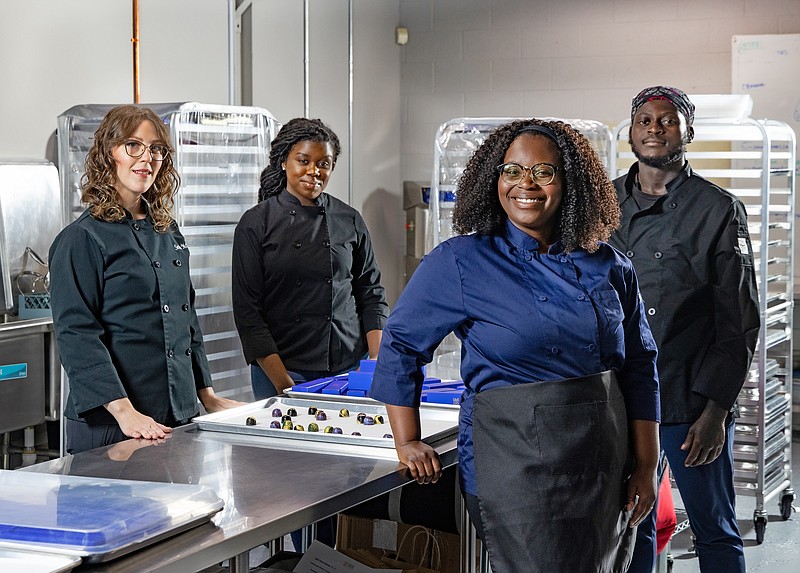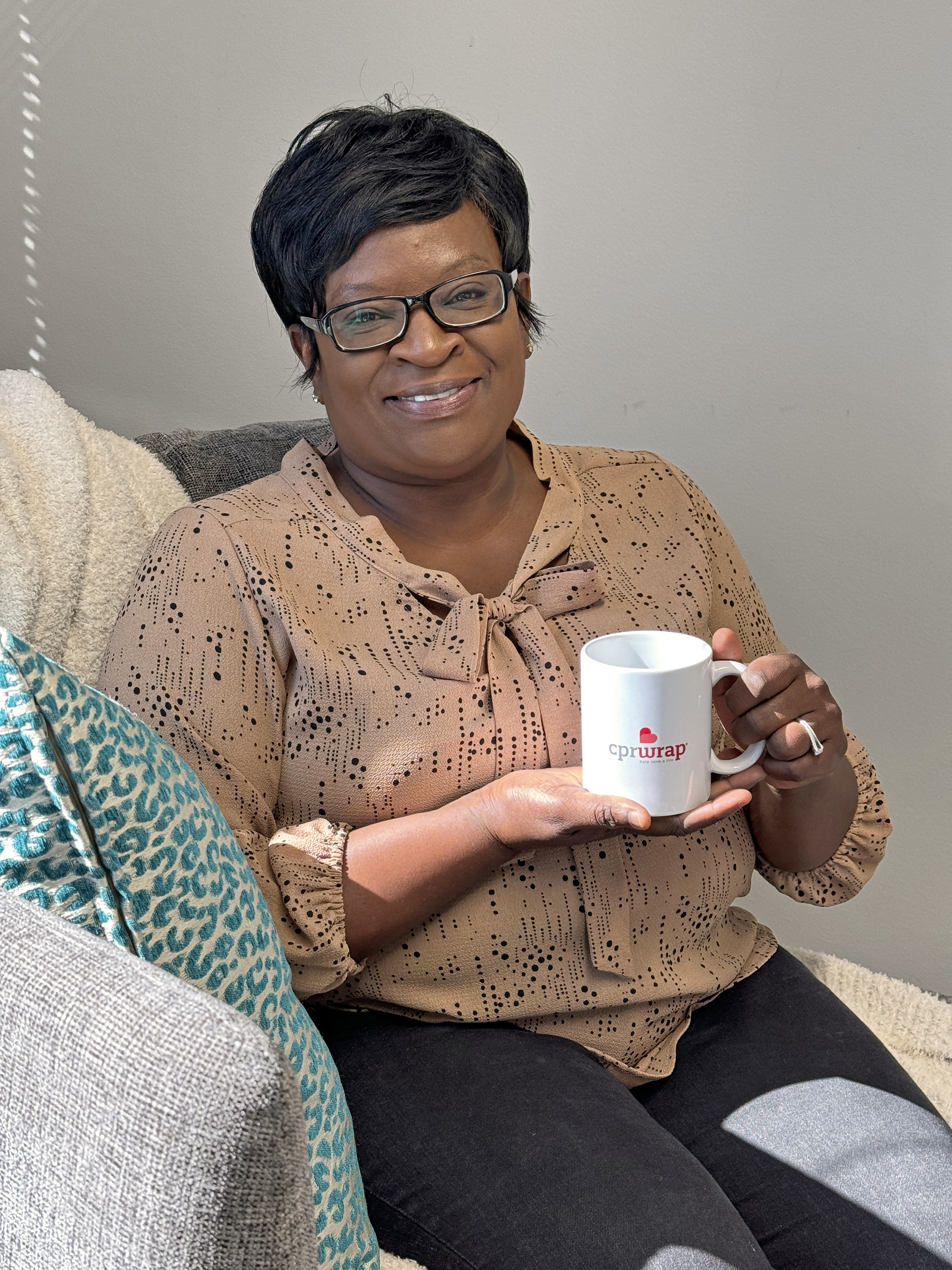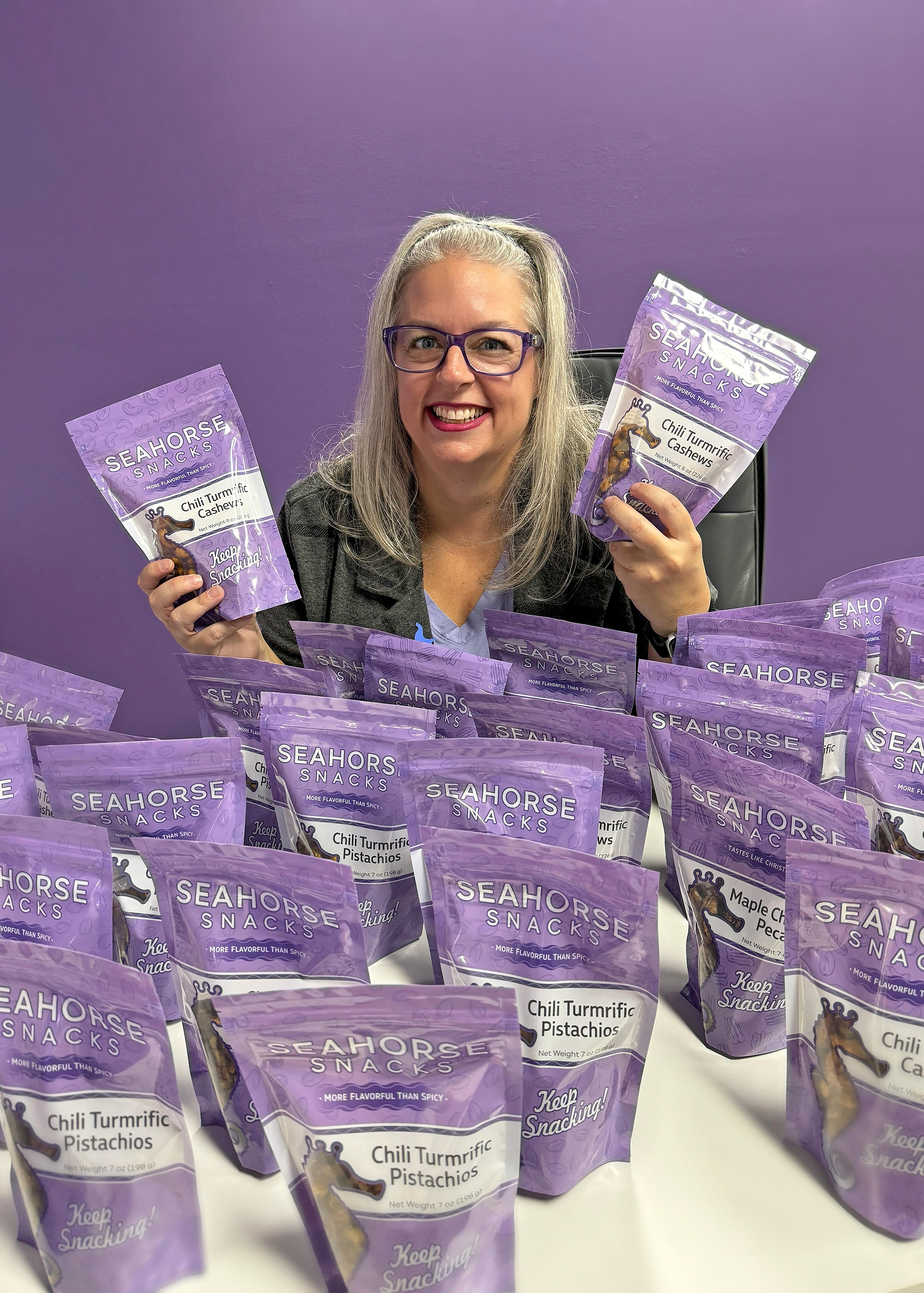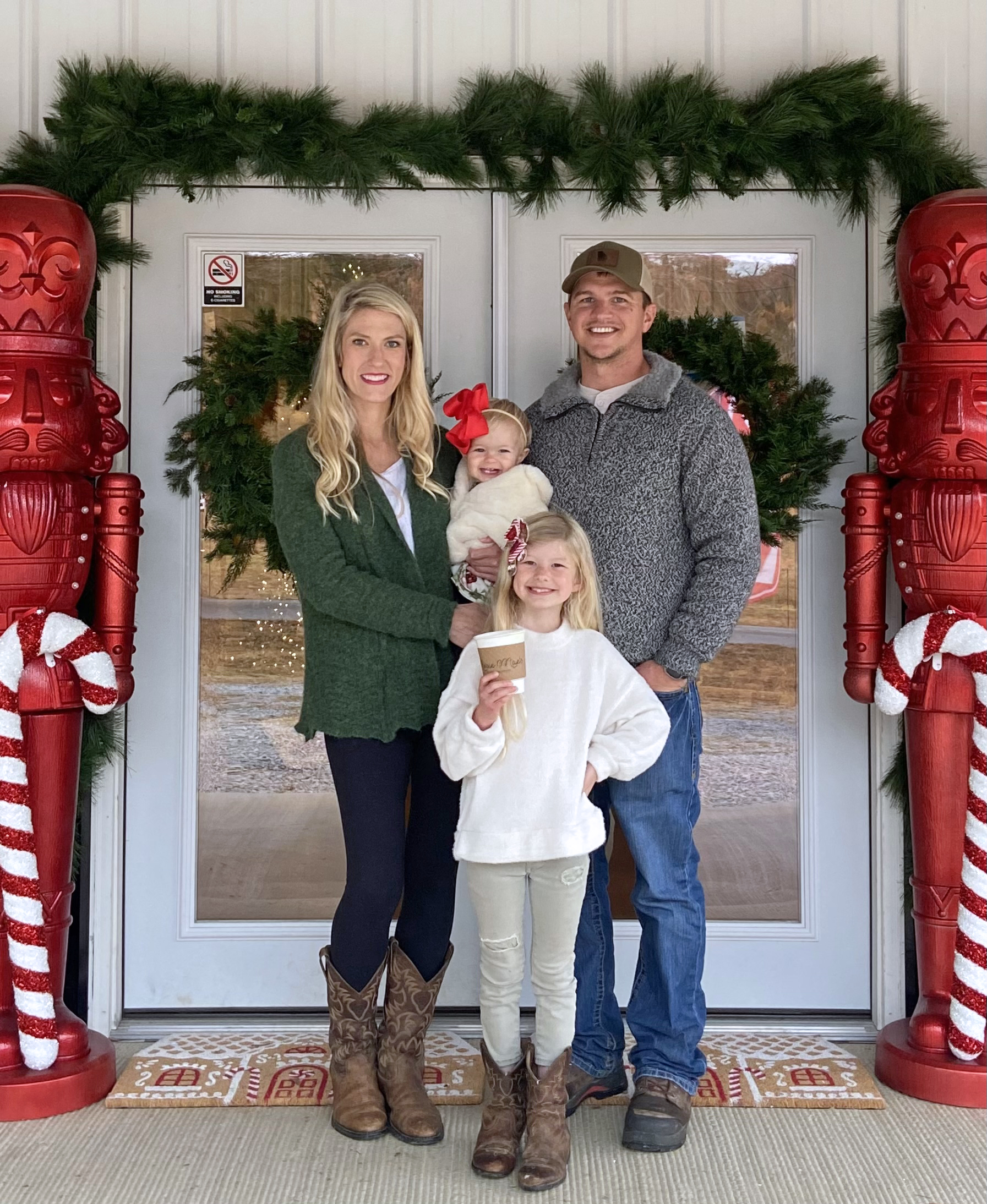When a post or video goes viral on social media, it can seem like magic.
Out of nowhere, seemingly, something catches on -- and like wildfire, the numbers are rolling in -- hundreds, thousands, millions of people reacting to your product or business.
But is it really magic? Is there a way to make videos go viral or is it just chance? The answer to that, say two digital marketing experts, is that it's a combination -- a lot of work with a touch of magic.
"'Going viral' -- it's such a nebulous phrase," says Ryan Russell, associate lecturer of marketing at the University of Tennessee at Chattanooga and CEO at Lift Media Group. Still, he's able to rattle off a basic definition: "Going viral" is the rapid and widespread circulation of a video or image across the internet, primarily through social media.
But it's not always about numbers. What's more important is the impact made. He gives an example of a social media post that gets 5,000 views, selling a lot of product versus a post that gets millions of views, but sells little. The first one is the one you want, he says.
"To put it in baseball terms, it's having the proper number of 'at bats' -- making sure you're producing high-quality content on a regular basis," says Russell. "It happens by reading the room effectively, seeing what types of content are resonating with audiences and trying to feed into that."
Kenneth Burke, vice president of marketing at Text Request, a business text messaging platform based in Chattanooga, has some good news for those who have yet to crack the code of internet magic: Going viral is great, but slow and steady can still get you there.
"Even if you do all the right things, 'going viral' is still a one-in-a-million phenomenon. Most attempts will fail," he says. But of those that do succeed, there tend to be five main characteristics that help posts get views:
* They're entertaining: You've got to grab viewers' attention, which is usually done through a gimmick or overexcitement
* They're interesting: Viewers want to learn something new and engaging
* They use a 'unique voice': Find the voice that fits your brand and that stands out from the crowd
* They create drama: Like a good movie, there needs to be some tension. Examples would be disagreeing with a popular view, or having the audience believe they're missing out on something
* They give a 'what's next': Give viewers a directive. Click on this link. Buy your tickets now. Follow me on Instagram.
"In general, I don't recommend trying to go viral as a business strategy," says Burke. "It happens. But for every home run you see, there are a million strike outs.
"What I'm a bigger fan of is low-risk, moderate- to high-reward opportunity. Going for base hits instead of going for the home run."
In the pages ahead, we checked in with several Chattanooga entrepreneurs who did manage to "go viral" during 2023, who shared their stories with us about how it happened and how the experience changed the trajectory of their business.
Ella Livingston // Cocoa Asante
* Founded: 2018
* Background: Ella Livingston, who was born in Ghana, a country renowned for cocoa bean cultivation, had a "life-altering experience" during her studies in Japan when she tasted a particular chocolate that left a profound impact. "It kind of shifted my world view a little bit," she says. Inspired by this chocolate encounter and her Ghanaian heritage, Livingston conceived the idea of merging chocolate production with cocoa cultivation -- and her company, Cocoa Asante, was born.
How quickly can a viral video change a life? For Ella Livingston, it was overnight -- or three, to be exact.
Social media influencer Keith Lee began his rise to online fame during the pandemic, reviewing small businesses -- restaurants that weren't very well known -- and giving his honest assessment. And the internet responded to his candor.
Slowly and diligently, Livingston worked on getting Lee's attention, hoping he would review her chocolates. Eventually, her followers began helping her -- tagging Lee in her videos to connect them through social media. One day in March of 2023, she posted a video of herself, singing the words "God's going to do it, God's going to blow my mind."
And overnight, everything changed. Lee posted his review of Cocoa Asante on a Friday; and by Monday, the response was great enough that Livingston turned in her resignation as a math teacher.
But that was just the beginning. There were even higher highs to come.
Since the initial Lee boost, Livingston has started working with a local agency called Kae B. Communications in Chattanooga. Weeks later, they posted a short video that got more than 5 million views on TikTok. After that, they posted a screenshot of an article on Instagram that got over 6 million views.
And her hot streak didn't stop there. Livingston next went on to win the Tennessee Valley Federal Credit Union's Idea Leap, and was awarded $30,000 to go towards growing her business. She also earned national media attention, including an interview in Business Insider and a live appearance on CNN.
"In less than two weeks, we did more in revenue than we did in 2022," she says.
By summer, Cocoa Asante launched a Kickstarter campaign. With the funds from the campaign combined with funding through The Community Foundation, they were able to raise enough capital to go "bean to bar" -- roasting their own beans used in their products. Livingston has also moved out of the Hamilton County INCubator and now has her own production space with more than twice the square footage.
"We've doubled our team, and I am now able to provide health insurance and other benefits -- they have vision, bonuses, etc.," she says "After resigning, the second thing I did was start the process of getting them health insurance."
Livingston says her advice to budding entrepreneurs is to "Just keep going. You literally never know when it's going to happen."
"When I started, I knew I didn't have a huge marketing budget and social media was one of the best ways to do that. Social media gives you the best shot at getting your message out there and building a community," she says.
"What people don't see is that, for about two years, I was posting on TikTok multiple times a day, about five to six days a week. It's that consistency. People didn't see all that work. They thought we were an overnight sensation."
Felicia Jackson // CPR Wrap
* Founded: 2017
* Background: Felicia Jackson, a former physical therapist assistant at a Chattanooga hospital and a mother of three, found her life forever altered during a family trip. Her young son began choking -- trying to cry, but not able to make sound. Instead of administering CPR, Jackson froze. Luckily, her husband was able to help their son. But as a health care professional, she was frustrated with her own response. All which led to the development of CPR Wrap -- an all-in-one paper template that simplifies the process of CPR, with directions for hand placement, proper compression techniques and a plastic mouth valve.
Fairly early on in starting her business, CPR Wrap, Felicia Jackson knew she was in big financial trouble. But not one to give up easily, she made the decision to "go all in" financially -- keeping the decision a secret from her husband.
"We almost lost everything," she remembers. "We almost lost our home. We did lose our cars. It was bad."
By 2021, one of her daughters had become "the queen of TikTok." Initially skeptical, Jackson had always perceived the platform as not right for her product -- too silly, and designed for the younger generations.
But having exhausted all of her marketing ideas, Jackson decided it was worth a try. To her surprise, she had some small successes -- enough to keep her going.
But it wasn't until this year, 2023, that Jackson posted the video that broke loose. Prior to the post, Jackson had a business mentor who had suggested that hiring a white company spokesperson could help market the product online. Instead, Jackson told that story and the internet reacted with outrage, netting CPR Wrap between 20,000 to 30,000 new followers.
"I felt empowered," she remembers. "At first, it felt unbelievable. ... But then it was like, OK, now we can do what we need to to do."
Months later, she posted a second video of herself with the template draped over her chest, recounting the story of nearly losing her son. Again, CPR Wrap went viral, with more than 11 million views in just three days.
"We made over $300,000 from people buying through TikTok," Jackson recalls. And when TikTok sold out, customers found CPR Wraps on platforms such as Amazon, Walmart and their website, cprwrap.com.
Suddenly, CPR Wrap began receiving orders not only from parents, schools and hospitals, but from various media sources, including a call from a producer on singer and actress Jennifer Hudson's talk show.
"Before making that post, I was ready to close my business," says Jackson. "We weren't making sales, couldn't pay employees. I couldn't pay myself."
Today, CPR Wrap is working on a couple multi-million dollar business deals for medical organizations in Dubai, Jackson says. She's been able to make three new hires, as well as paying herself and a chief of staff "a decent salary."
"It really thrust us into the limelight," she says. "Because of those videos, people knew we existed. Not only were they buying, they were telling other people -- and they still are.
"Before that, as a minority-owned company, it was so hard for my company to get investments. Those videos have brought more investors to the table. They can see the growth we can achieve.
Her advice to other entrepreneurs: "Be open to all possibilities. Don't look at something and say it doesn't fit for your company right now. You never know how far it may take your company."
Stacy Martin // Seahorse Snacks
* Founded: 2021
* Background: Four years ago, Stacy Martin's doctors discovered she had a genetic mutation, which presented an 80% chance of stomach cancer and a 60% chance of breast cancer, leaving her with a big decision: commit to a lifetime of continuous surveillance or undergo a complete removal of her stomach. Opting for the latter, her pathology report revealed 17 hidden cancer spots, validating her choice. The surgery changed her life in many ways, just one of them being her diet. Her new reality requires her to eat a high-protein diet, with small meals every two hours. Nuts, she quickly discovered, were a convenient and healthy snack -- and maybe a new way to make a living.
"Seahorses don't have stomachs, and neither do I," Stacy Martin says with a hint of humor, talking about her company, Seahorse Snacks.
Martin began her entrepreneurial journey making big batches of nuts in her home kitchen, testing out different combinations of maple, chai, chili and turmeric. Now working out of her own manufacturing suite in the Hamilton County INCubator -- Seahorse Snacks have found their way into high-end gift shops and markets, and can also be found online.
And last summer, she was able to bring on her first intern, who helped with social media and email marketing.
"She thought we should post something to TikTok," Martin says. "So on June 30, we posted our first-ever TikTok." The video showed Martin, dressed in her trademark purple clothing, sitting in front of the Tennessee Aquarium -- telling her authentic story.
"By 9 a.m. on July 1, we had 100,000 views. By 10:30, we had 200,000. And in four days, we had 1.4 million views," she says. "So, we went from zero to 1.4 million views in four day -- with 10,000 new followers and 150,000 likes."
Martin remembers the moment as being surreal. She began getting notifications through her digital watch, and soon, her wrist was dinging every 15 minutes. The video, she says, was one she had previously posted on Facebook and Instagram without much fanfare -- so she couldn't quite figure out what was happening.
"So I called my intern, and she said 'I think we just went viral,'" says Martin.
Inspired by her online success, Martin took a chance and drove to Indianapolis during the summer of 2023 for open auditions of the television reality show, Shark Tank. While she didn't receive the call back, she is choosing to look on the bright side.
"It was a good experience," she says. "I got to make my pitch. ... And I got to tell my story to more people."
Also as a result of the online attention, she was interviewed by The Guardian, a British newspaper with global reach that published a story about her in November.
For now, she is in the height of her busy season. She estimates about half of her business happens between October and December.
Of course, she would like for Seahorse Snacks to reach new viral heights. But she says it's tricky trying to recreate something when it's a little mysterious how it happened in the first place.
"How do you capture the lightning in the bottle and make it work for you?" she asks. "That, I don't have the answer to yet."
Max and Meagan Lewis // Rosie Mae's Alpaca Farm
* Founded: 2022
* Background: Max and Meagan Lewis never set out to run a coffee bar or a gift shop or an alpaca farm -- but that's how their story unfolded. When their first daughter, Rosie Mae, asked for an alpaca one year for Christmas, they told her no. But when Meagan, who is allergic to most animals, discovered alpaca fur is hypoallergenic, she started to soften to the idea. Initially, the Lewis' compromised, taking Rosie to visit a nearby alpaca farm, just to pet the animals. Ultimately, though, that trip ended with the family owning its first of what would eventually become four furry ungulates. The farm led to the creation of a small gift shop -- and the gift shop led to the creation of a coffee bar. And all of it comes together to be what visitors now know as Rosie Mae's Alpaca Farm.
The story of Rosie Mae's Alpaca Farm is one about the power of simple acts of kindness -- especially when one of those acts is a video that goes viral.
When Max and Meagan Lewis opened their alpaca farm last year in Wildwood, Georgia, their neighbor, Casey Pritchett, took notice. Impressed, he took it upon himself to have road signs printed, guiding visitors to the right spot -- at no charge, a gift from a neighbor.
The signs soon caught the eye of Chattanooga tour guide and social media influencer, Hope Maum, who decided to pay a visit. Smitten, Maum shared a video of Rosie Mae's on social media -- "just for fun."
"She told us, 'You may get a little busy,'" Max recalls. "That was on a Saturday. And by Sunday, there were cars everywhere."
Until then, the weekend staff consisted of the two of them, with help from one or two family members. But that particular Sunday? The power of social media boosted their business into new territory.
"My mom and sister came, and we recruited them back to the kitchen," Max recounts. "We all pulled together. We went from selling five pounds of coffee in a weekend to 25 pounds. We were having to run and go get extra milk and coffee, extra everything."
Ultimately, Maum's video reached more than 1.4 million viewers, bringing thousands of new online followers and real-life customers.
"It completely changed the whole dynamic of our business," says Max. "It gave us a jump start. For most small businesses, the initial start is the hard part -- especially for us, because we're off the beaten path. ... We didn't see that many people in a week, much less on a Sunday."
Today, Rosie Mae's has expanded to include seven additional staff members. Max continues to work full time at the Tennessee Valley Authority, four 10-hour shifts Monday through Thursday, which allows him the freedom to be on hand at Rosie Mae's over the weekend.
While the video gave them a big boost, Max believes that the farm's reasonable price point has contributed to the sustained interest. It offers a low-cost way to spend the day that's fun for the whole family.
"If it's a busy Saturday, we've got to have three people in the shop," Max says. "And we're always out talking to visitors, doing education about the animals, making sure the crowds are having fun.
"We just want people to enjoy the coffee and the experience and have a good day."
READ MORE



